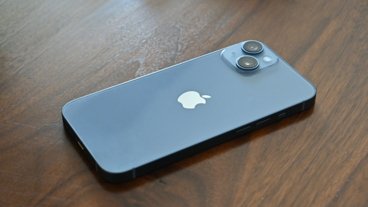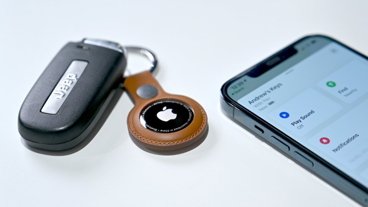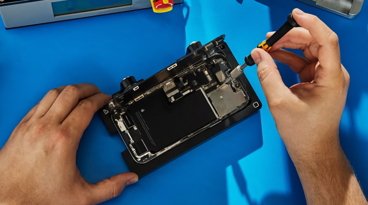AT&T denies accusations that it pushed its retail outlets to sell iPhones alternatives
According to a report by BGR, AT&T has routinely "been instructing store managers to pump the brakes on Apple’s iPhone," specifically "handing down instructions that state that customers seeking smartphones at AT&T retail stores should be steered away from Apple’s (AAPL) iPhone and towards Android phones or Windows Phone handsets like the Nokia Lumia 900 instead."
The site says it "confirmed the directive with three independent sources." While BGR has a mixed track record in many areas pertaining to Apple (particularly in regard to rumors of future products), it has historically served as a reliable source for news related to carriers and phone retailers.
AT&T responded to the report to deny the accusations, stating that "the idea that we would steer any customer away from a particular device couldn’t be more farfetched."
The company added, "our reps do what it takes to align customer needs with the best device for them. iPhone remains one of our most popular devices, which doesn’t happen by steering people away from it. Our reps are encouraged to try all devices so they are more knowledgeable on our industry-leading smartphone lineup."
At the same time, AT&T began publicly promoting modern Android devices after it lost its exclusive relationship to carry Apple's iPhone in the US last year, and this spring, the company announced a partnership with Nokia to promote its new Windows Phone 7 Lumia, a deal that reportedly cost the carrier $150 million and was supposedly going to result in a larger launch than the iPhone. Instead, AT&T's Lumia lackluster launch lethargically limped.
Apple's iPhone currently accounts for 72 percent of the new smartphones activated by AT&T, but BGR noted that internal sales figures from AT&T retail sources pointed to a decline among the carrier's own outlets from a high of 80 percent down to sales "between 50% and 60% since regional managers instructed stores to actively push other smartphones in place of the iPhone."
Apple's own retail and online stores sell a large number of phones activated by AT&T, and a wide variety of other retailers also sell iPhones on AT&T's network in the US. The loyalty of iPhone buyers (and their lack of "churn" in running to other carriers after their contract runs up) has made them attractive subscribers for carriers.
At the same time however, the higher subsidies negotiated by Apple means that the iPhone is a little more expensive for carriers up front, making it in the carriers' interest to promote cheaper, simpler phones tied to the same kinds of plans.
Carriers concerned about "wild popularity of iPhone"
AT&T's insistence that it would be "farfetched" for the carrier to "steer people away from" the iPhone also conflicts with reports from Blackberry maker RIM that aired this summer, as highlighted by the Wall Street Journal, which stated that in 2010, AT&T, "then Apple's exclusive carrier partner, approached RIM about a plan to develop a touch-screen rival to the iPhone," citing two former RIM executives as the source of the report.
"The chief of AT&T's mobile division visited RIM's research and development team in Waterloo to stress how important it was for AT&T to have a successful BlackBerry product to sell, according to people familiar with the visit," the Wall Street Journal stated, a message that resulted in the BlackBerry Torch project that put the device's physical keypad on a slider and made its touchscreen more prominent in an attempt to better compete with Apple's iPhone.
According to the report, both AT&T and Verizon scrambled in 2010 to develop products with RIM, specifically to "prevent Apple from gaining "outsize influence in the market." Both carriers have since moved on to promoting Android (particularly 4G LTE models) and then Windows Mobile devices, neither of which has prevented the iPhone from accounting for the largest segment of the carriers' smartphone activations.
More than a decade ago, Apple faced similar issues in selling its Macintosh computers through independent retailers, most of whom preferred to sell no-name or store branded PCs and keep a larger share of the profits. That reality induced Apple to launch its own retail stores twelve years ago, a move that paved the way for Apple to launch new iPods, iPhones, and the iPad with sharp marketing focus, generating long lines of excited buyers who were offered no competitive distractions once in Apple's stores.
 Daniel Eran Dilger
Daniel Eran Dilger










 Andrew Orr
Andrew Orr
 Sponsored Content
Sponsored Content
 Malcolm Owen
Malcolm Owen

 William Gallagher
William Gallagher

 Mike Wuerthele
Mike Wuerthele
 Christine McKee
Christine McKee







